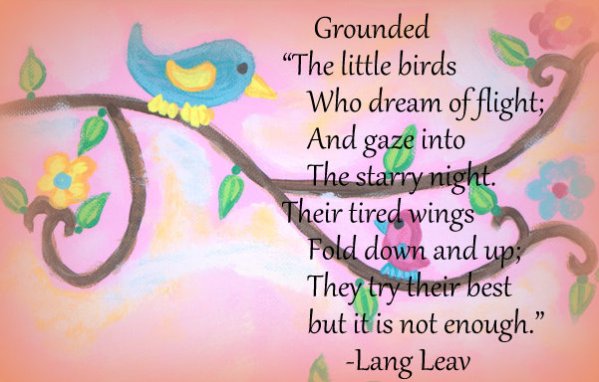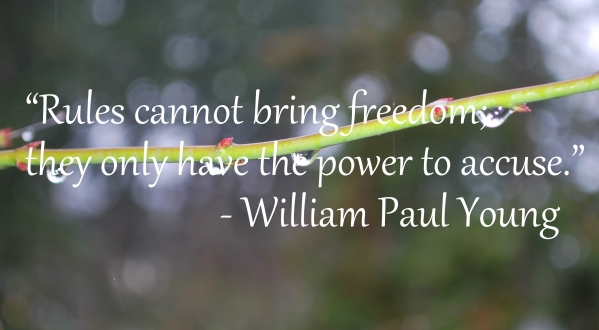 A few months ago, we acquired a new resident for our aquarium. I named our little African dwarf frog Sir Hops-a-Lot, and he provided quite a bit more entertainment than the fish that just swam in circles all day. My daughter and I did a little research and found that African dwarf frogs are very social. This discovery led to the purchase of another African dwarf frog, Sir Spotty, to be a companion to our first one.
A few months ago, we acquired a new resident for our aquarium. I named our little African dwarf frog Sir Hops-a-Lot, and he provided quite a bit more entertainment than the fish that just swam in circles all day. My daughter and I did a little research and found that African dwarf frogs are very social. This discovery led to the purchase of another African dwarf frog, Sir Spotty, to be a companion to our first one.
Not long after both frogs joined our household, I noticed a peculiar thing about Sir Spotty that caused me to panic a little. He was floating near the surface of the water with his arms and legs spread out, totally motionless. I thought he was dead, but to be sure, I knocked against the glass several times until he shifted slightly, as if startled out of daydreaming. The next day I caught Sir Hops-a-Lot doing something very similar. He was closer to the bottom of the tank with one foot rested on a plant and the rest of his body suspended in the water, swaying gently with the current of the tank. “Please don’t be dead,” I thought to myself. We had just had several of our fish go belly up in the last few days, and I wanted to think that we were not aquatic animal killers. Sir Hops-a-Lot stayed in that position for over an hour before darting up to the top of the tank for a little air.
I decided to do a little more research on African dwarf frogs to see if this was a normal occurrence for them. In doing so, I read that African dwarf frogs in captivity often participate in what is commonly called “burbling.” A frog in a burbling position is effectively zoning out for a while, giving his body a rest from constant swimming or hiding. You might say that he is in a meditative state of sorts. This information was a great relief, although I admit to still knocking on the tank occasionally when they look particularly dead.
One recent morning, I was sitting at the dining room table, reading a bit of Scripture and journaling in my notebook. I looked up to see that Sir Spotty was burbling again, and I noted how still and peaceful he looked. It reminded me of a verse in Psalms – “Be still, and know that I am God.” (Psalms 46:10) Curious, and because the kids somehow were still miraculously asleep in their rooms, I looked up “Bible verses about being still” and was surprised to find so many on that topic. I was drawn to the passage in Lamentations 3, where Jeremiah famously talks about the Lord’s mercies being new every morning and about the greatness of God’s faithfulness. A little further down, Jeremiah proclaims: “The LORD is good unto them that wait for him, to the soul that seeketh him. It is good that a man should both hope and quietly wait for the salvation of the LORD.” In the margin of my Bible, some years ago, I had written “I must HOPE~SEEK~WAIT on Him!”
I tried to remember the last time I had truly been still. When had I I last sought out God with no other distractions and then waited for His answer? Four noisy kids now demanding breakfast and clean underwear and morning hugs answered that question all too clearly. Being still and listening for God’s voice had disappeared a long time ago and had been replaced by grocery lists and overflowing laundry baskets and scraped knees. Even when I got up early enough to meet with God before the kids woke up, my mind was still distracted with to-do lists and the busyness of life. Too many a prayer was interrupted by a seemingly greater need of one of the kids. Too many a Scripture reading was halted by the chaos of life.
I realized that I needed to make time again to just be still. In my Scripture reading just this morning, Moses tells the Hebrew people to stop being afraid of the Egyptian army in hot pursuit. He encourages them to “stand still, and see the salvation of the LORD.” He basically tells them to be quiet and let the LORD do the fighting for them. How often am I missing out on God doing some great things in my life because I won’t be quiet? Perhaps, to drive the point further home, what peace and contentment could the Lord bring if I would stop checking Facebook/emails/cell phone games/latest TV show so frequently?
It has been quite the challenge to learn to be still, to turn off the constantly humming “mommy thoughts”, and to realize that I do not have to be constantly entertained or busy all the time. Every day is a struggle. I ask God to please take away the distracting thoughts and try to focus on one time a day that I can just make like a frog and burble. It’s usually after the kids go to bed (I mean sleep, because well we all know that “going to bed” doesn’t necessarily mean quiet kids!).
And in the midst of the most chaotic days, I give myself a little grace. If “being still” doesn’t happen today, it will tomorrow. And I’ve always got my burbling frog friends around to remind me.



